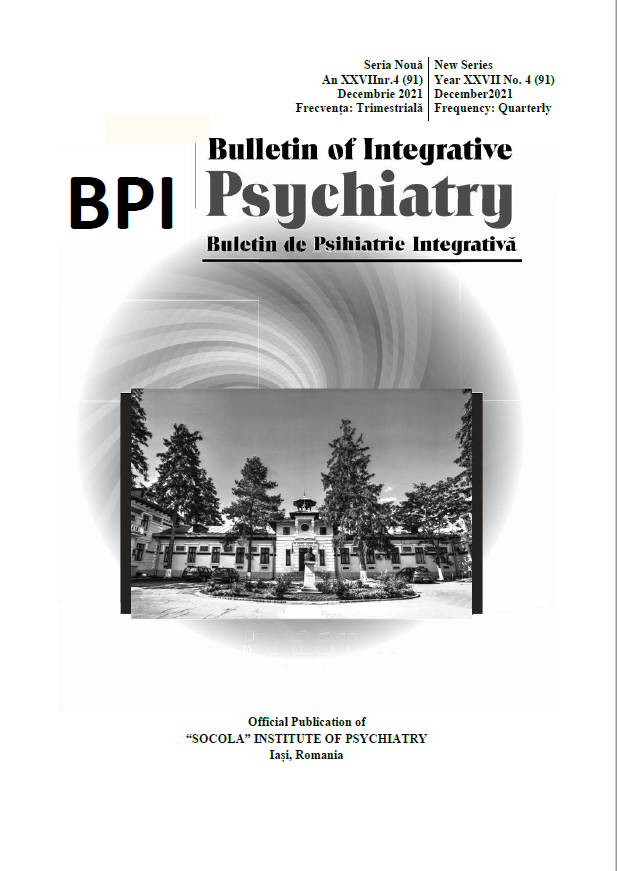Possible age-dependent biomarkers in predicting the severity of major depressive disorder: mini-review and preliminary original data
Possible age-dependent biomarkers in predicting the severity of major depressive disorder: mini-review and preliminary original data
Author(s): Andreea Elena Morosan, Bianca Augusta Oroian, Alin Ciobîcă, Gabriel Plăvan, Ioana-Miruna BalmusSubject(s): Methodology and research technology, Health and medicine and law
Published by: Editura Sedcom Libris Iasi
Keywords: Depressive disorder; hyperglycaemia; hypertension;
Summary/Abstract: Background. Major depressive disorder (MDD), characterized by depressed mood accompanied by loss of interest for daily activities or irritability, delusional guilt or feelings of worthlessness, sleep and eating habits impairments, body mass changes, psychomotor impairments, fatigue, decreased concentration, and in some cases negative or death thoughts, is the chronic form of severe depression with an episodic course that is prevalent in older adults. The recent studies showed that MDD risk factors and symptoms could vary depending on the patients’ age, sex, and socio-cultural premises. Also, the recent reports described the correlation between the severity of MDD and age, sex, blood glucose, and blood pressure. Objectives. Thus, the purpose of this study was to analyze how depression manifests itself depending on the age of the patient at which it occurs, what are the factors that can trigger this mental suffering. Methods. 35 MDD patients were recruited from the ”Socola” Institute of Psychiatry Iasi and divided into two groups according to their age. While the MDD diagnosis according to DSM-V was generally regarded as sufficient inclusion criteria, the patients who history of alcohol, nicotine, or any had forbidden substances consumption and the diagnosis of any other psychiatric disorder were excluded. Results. We observed that most of the patients had a heredo-collateral history, cardiovascular pathology, or oncological pathology, were unemployed, retired or had recently lost their jobs. We observed that MDD severity was higher in the older adults, as compared to the younger adults. Also, the blood glucose levels were higher in the older adults, but no difference was observed for blood pressure. Furthermore, most of the recruited MDD patients originate from rural areas, poor education, are retired (older adults) or unemployed (younger adults). Chronic pain and other chronic illness were predominant older adults and depressive episodes are persistent.
Journal: Buletin de Psihiatrie Integrativa
- Issue Year: 91/2021
- Issue No: 4
- Page Range: 17-31
- Page Count: 14
- Language: English

